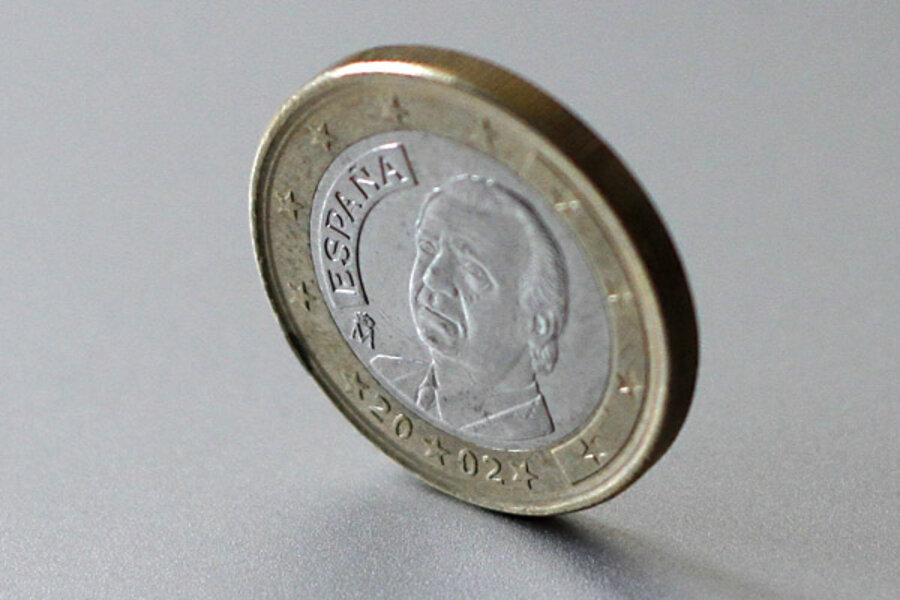The case for a German value added tax
Loading...
I have repeatedly (for example in this post) criticized the view that a reduction in the external deficits of Greece and other crisis countries necessarily requires a reduction in the external surpluses of Germany and other euro area surplus countries, because it simply isn't true.
However, pointing this out doesn't mean that I don't also think that it would be good if Germany shifted more of its production towards domestic demand instead of net exports. But how is that to be achieved in a way that doesn't hurt the German economy?
Some people have accused Germany of "wanting" a surplus, but I don't believe that, I think it is more correct to say that they want the income and the jobs generated by exports. If the income can be attained by other means then they wouldn't object to it. Quite the contrary, that would probably be perceived as preferable since that would mean that they wouldn't risk losing it through debt default from the foreign borrowers that they've lent their surplus to. So the question arises, how can the German surplus be reduced without reducing (and preferably in fact increasing) German incomes?
There are actually probably several ways to achieve it, but the best way is arguably for Germany to repeal its 2006 VAT increase from 16% to 19%, and preferably cut it all the way down to the EU minimum level (that minimum level should be abolished, but as long as it exists it does limit how much it can be cut) of 15%.
The 2006 VAT increase didn't directly hurt the German economy as much as I and other feared at the time because it was combined with reduced payroll taxes and other supply increasing reforms. However, it contributed indirectly to aggravating European imbalances and therefore also the current crisis.
As I've pointed out before, the effects of a VAT (and other consumption taxes) is basically identical to the effects of income taxes and payroll taxes on economic transactions which involve a domestic seller/producer and a domestic buyer. Both create tax wedges between the cost for the buyer and the net income of the seller.
However, while basically no difference exist with regard to purely domestic transactions, they have different effects on transactions with foreigners. The difference is that a VAT isn't directly applied to most (one exception is tourism services, which is why VAT increases in tourism dependent Spain and Greece have been destructive) exports but it is applied to imports, while by contrast income/payroll taxes aren't applied to imports while it is applied to exports. This means that if you make the kind of tax reform that Germany did in 2006, it will increase exports relative to imports and thus in Germany's case increase its trade surplus, the flip side of which was bigger deficits in countries like for example Ireland, Spain and Greece.
This also means that the most effective way of facilitating the adjustment in the crisis countries while not hurting or even strengthening the German economy would be to repeal the VAT increase and lower it back to 16% or better yet 15%.. This will increase demand for economic activities based in part on imports , strengthening both the German economy and other economies. Preferably in other not to hurt other activities the cut shouldn't be financed by higher income or payroll taxes (though such a reform would still help painlessly lower the German surplus). Instead Germany should to the extent it needs to be compensated cut government spending, though particularly given today's ridiculously low German bond yields (only 0.05% on 2-year bonds, and less than 1.4% on 10-year bonds) it could afford a short term increase in its budget deficit.
Finally, it could be objected that if higher VAT rates have hurted tourism in Spain and Greece, why won't a lower VAT in Germany also hurt tourism in Spain and Greece since it also represents a higher differential? Well, there are two reasons for this. The first is that a lower VAT in one country will expand the aggregate amount of tourism in two countries while a higher VAT in once country will lower the aggregate level of tourism. The second is that the limited amount of tourism that exists in Germany competes only to a limited extent with the kind of "warm weather and nice beaches" tourism that Spain and Greece attracts. By contrast, when Spain and Greece have raised their VAT rates they have put them at a disadvantage to countries that attracts similar tourists, like Turkey and Cyprus.








